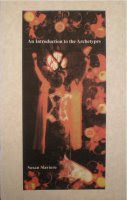When it comes to literary aversions, I think there are two kinds of people: those who don't read at all, and those who don't read poetry.
I love reading poetry. This is not only because I write it and have an interest in the art form. I am attracted to the singularity of focus required for reading it, the compression of narrative forms, the intensity of the language itself. I remain somewhat flummoxed by those who say they don't like or understand anything written in verse. Really? It's not any more difficult to read than prose. Honest.
The best poems (and collections of poems) transport the reader to an alternate world. It might be an unrecognizable future (or past), but it might also be firmly planted in everyday experience, only with the volume turned way up, the colors brighter and more vibrant. It's a place where the world takes on layers of complexity, and that will always be a place that fascinates me.
As I have been lackluster with my blogging as of late, I'm hoping to enliven this poetry blog with a regular chapbook review feature. I'd like to begin with the very first chapbook produced by a terrific poetry journal, Goblin Fruit...
***
Review of
Demon Lovers and Other Difficulties
by Nicole Kornher-Stace
I was unfamiliar with Ms. Kornher-Stace's work until I read it in Goblin Fruit, and I was intrigued enough to purchase her chapbook, which is saddle stitched and beautifully constructed by the editors of GF; the cover is colorful and professional, constructed of sturdy, slick, high quality cardstock, and the pages are very clean with no rough edges. It's small, but stunning.
Of course, the most important aspect of any publication is the work itself. The chapbook alternates between a set of poems entitled "The Demon Lover's Child Grows Up," a four-part series of persona poems that speak in the voice of the Demon Lover's child, and a set of related poems constructed in other voices.
The Demon Lover's Child poems trace a narrative arc through his infancy, childhood, adolescence and adulthood. The first poem in the series really sets the scene for the book, not only with the promise to reveal the tale of the Demon Lover's Child, but also with the promise inherent in the poetry itself, which demands the reader's attention:
Don't you? I screamed. Don't you know me?
Oh cold you are. Am I so easily forgot?
What of the moss I crushed your spine into,
the snowdrifts, bluebells, autumn leaves?
What of the words I singed, spark-bright, coal-dark,
into your skin? (14-19).
Much like the mother of the enraged demon child, I find myself marked by the words that are indeed "spark-bright and coal-dark."
One of my favorite poems in the chapbook is called "The Changeling Always Wins." What mother has not been haunted by the fear that she is at the mercy of a terrible baby, something not of this world? My favorite image in the poem comes toward the end, when the mother questions what she might find should she look inside the infant, "A clockwork heart, a clot of earth, / a vein-fine plait of baby hair tied thrice, / which I might recognize?" (34-36).
What an ominous piece! The voice of the mother weaves together the unspeakable and the familiar so deftly, the reader feels both sympathy and terror. It's a beautifully crafted poem.
The most challenging poem, "Other Difficulties" brings the chapbook to a close. This poem seems a bit less connected to the previous pieces, although the images, use of language, and subject matter do give it a coherent feel. I love the use of epistolary form, and imagine the characters of Fetch and Catch represent the importance of duality and illusion. It's a fitting end to an excellent chapbook, although I must admit, I was craving a one last installment in the voice of the Demon Lover's Child for the final piece.
To read a few of the poems or purchase Demon Lovers and Other Difficulties, you should click here.








2 comments:
I love to read poetry, too! Are we rare birds, or what?!
Rare birds, indeed!
Post a Comment